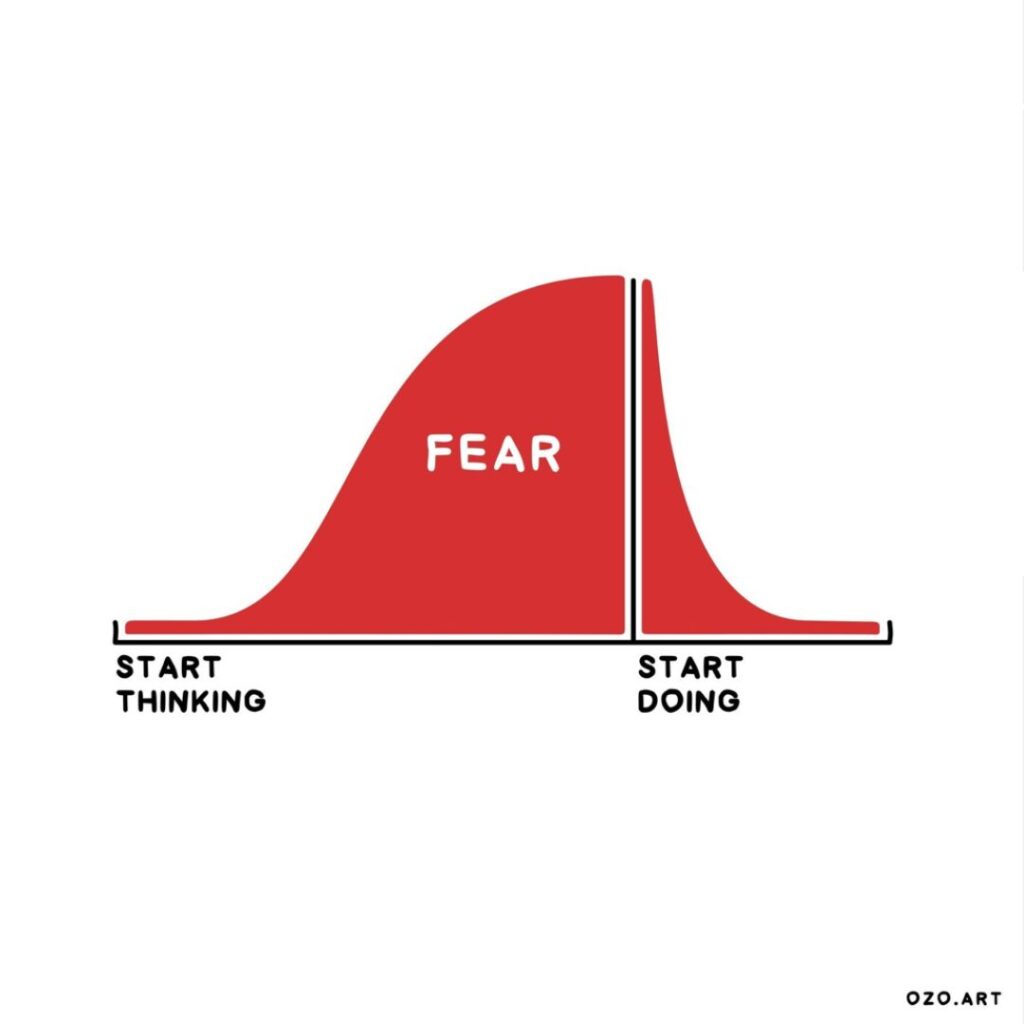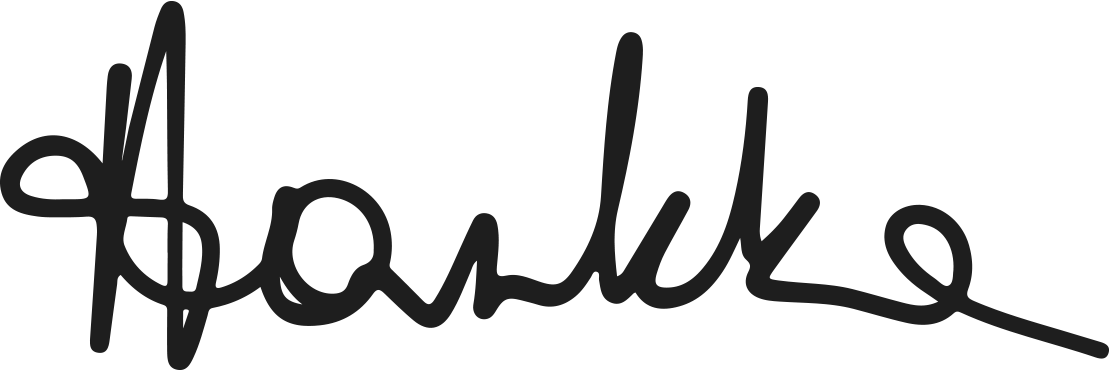It’s been months since I wanted to launch podcast on how AI and emerging tech influences the way we live and work. I keep meeting incredibly curious and insightful scientists and business people like Guido Palazzo (you MUST check his work!) and it’s a sin not to share their wisdom and knowledge (and shamelessly learn more myself). I finally made Are You Human Podcast happen, although it took me longer than I hoped.
No, it wasn’t lack of time. I believe that you always can find time for something important to you.
It was killing procrastination with another form of it.
The paradoxical trap
I wanted to launch prepared, so I kept researching about podcasting; what questions should I ask not to sound like a broken record, but make the guest feel like I’ve done my homework; how other podcasters do it (what’s Lex Fridman’s and Reid Hoffman’s Masters of Scale secret sauce and how can I pour some of it on my podcast?).
Then I got into equipment, microphone, lighting, tone of voice, discussion (damn you “uhm” and “like” pauses!), accent (should I keep practicing my British accent or keep that influence of London’s melting pot of cultures I hang out with), gesticulation (that living in Italy permanently ingrained hands gesticulation in me – should I tight my hands or at least keep them in my pocket?), overthinking (should I read books on mindfulness?). And what about my video background; should I buy tons of hardcover books (although I read on my iPad) to make it look like I’m an intellectual bookworm junkie – but not to overdo it – I wouldn’t want to be taken as a snob levitating between Freud, Sun Tzu’s Art of War and quantum physics, that I understand nothing about…?
And so I got myself entangled in the Browser Tab Centipede Monster – dozens of youtube tutorials on how to start, how to be more productive and more prepared. The more I read or watched other interviewers, the more discouraged and scared I was, seeing my imperfections. And while it was giving me illusion of progress (those ‘Aha!’ moments), it also made me feel too distracted or tired to focus on deep work. Yet another day was gone.
Ok, basta.
I decided to start and correct my mistakes as I go. I hope audience will be forgiving and generous with a constructive criticism.
The truth is that no book, school or podcast will give you the definite answers. Especially when you’re trying to do something different – and craft your style. You’ll never be ready and you’ll learn most by doing. Stop waiting for that ‘perfect’ moment. Courage is not the opposite of fear. Action is.

Image by Janis Ozolins
I know I’m not the only one who experiences illusion of progress while in reality, falls short to another form of procrastination. It’s no secret that the human mind has a natural inclination towards avoiding discomfort and seeking immediate gratification.
Authors of self-help books, podcast creators and such thrive (and monetise) on our fear of starting. We read or watch something that we most likely already know. We stay in to listen to it over and over again, just being told with different words and by different faces. That one more article will give us a more nuanced knowledge, where we’ll gain an edge, right?
The illusion of progress
We trick ourselves into believing that by gathering knowledge about productivity techniques, we are making significant strides towards our goals. We collect many tips and strategies, intending to apply them at some future point. Yet, we’re nowhere closer to launching our thing.
So where is this healthy line between something being useful to give us a head start, and a plain distraction? What is the minimum you should know upfront before starting something? Surely, if you see too many challenges, it may discourage you even further from starting. But at the same time you want to avoid making ‘obvious’ mistakes that others already made and can show you a short cut?
It’s all very subjective and you just need to learn how to drive that definite line, even though your lizard brain tells you to push it just a little bit more ahead..
Action over knowledge
To break free from the procrastination cycle, prioritise action over knowledge accumulation. Rather than seeking infinite information on how to stop procrastinating, shift your focus to taking immediate steps towards your goals. This is what works for me:
- Set clear goals: Clearly define your objectives and break them down into small, manageable tasks. I start with a bigger vision and then I try to list of things what things are achievable now and in my control. I also assign deadlines for them. This approach provides me a roadmap for action.
- Start small: Overwhelm is a common trigger for procrastination. Begin by tackling those small, manageable tasks to build momentum.
- Smash that Pomodoro: Use the Pomodoro Technique (or something alike) to enhance your focus and productivity. Don’t wait for the flow to happen on its own. It rarely does. Allocate specific blocks of time for focused work, usually 25 minutes, followed by a short break. This technique works according to how our brains process information (in small chunks, needs breaks often). I block my calendar for specific tasks and activities and set repetitive tasks in Google Calendar, when my project is long term and requires consistency.
- Prioritise tasks: Identify the most critical tasks that require immediate attention. As they say – eat the frog in the morning and enjoy some slacking later. Prioritising your to-do list helps you focus on what truly matters and avoid getting caught up in less important activities. I have my notepad where I list tasks for each day, and I put an exclamation “!” mark next to the ones, I must tackle first.
- Find your accountability partner: Share your goals and deadlines with someone you trust. Publish your plans. At least, that’s what I did on. Told my closest friends and shared it on Linkedin to my professional network – the more I was delaying launch, the worse I felt with not delivering. I use social media for three things: a) for a feedback b) to reinforce my fear from embarrassment – to challenge my fear c) to find likeminded people, especially those who are ahead of me.
- Limit distractions: Identify and eliminate or minimise potential distractions. Turn off notifications on your phone, close unnecessary tabs on your computer, turn off wifi if needed. Create a workspace that encourages focus. I am the most productive on a plane, where I use no wifi and have no distractions.
- Be self-compassionate: Procrastination is a common struggle, and beating yourself up over it will only worsen the situation. Accept that you’ll suck in the beginning, but will get better with practice. Just by starting, you’re already ahead of millions of other people who always wanted to do something, but won’t go beyond talking about it. Be proud of yourself and keep shipping.
Now, off you go. Start building, or writing that book you’ve always wanted to write. Good luck!


![Start-ups and start-downs [Evoque Journey] louveciennes @flickr](https://hankka.com/wp-content/uploads/2013/09/bfast.jpg)
![What are you afraid of? [Evoque journey] Donnie Nunley @Flickr](https://hankka.com/wp-content/uploads/2014/02/12331672305_9d924d76b0_z.jpg)

